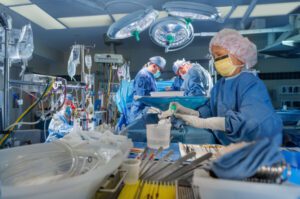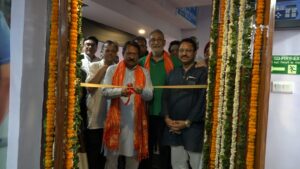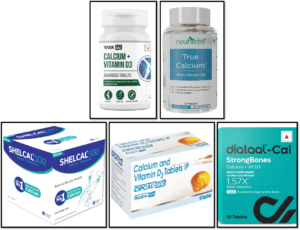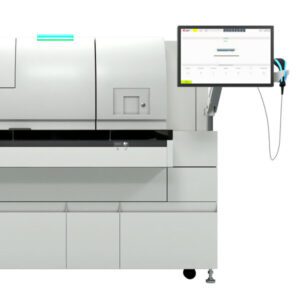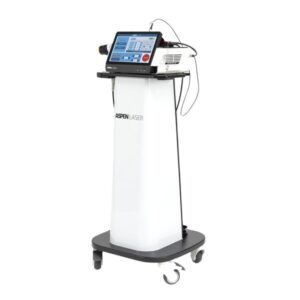
Due to ischemic heart disease (IHD) with Triple vessel disease (TVD), 59-year-old Ms. Rajani Kasbekar (name changed) was admitted to Wockhardt Hospitals, Mumbai Central in a critical condition.
Over the past few years, she was suffering from severe Chronic Obstructive Pulmonary Disease (COPD) and now she was having serious cardiac issues with symptoms like chest pain and breathlessness. Due to severe COPD, she was at high risk for general anesthesia, and it would have been difficult for her to come out of ventilator post-surgery. Hence a multi-disciplinary team of doctors decided of performing an awake coronary artery bypass graft surgery (CABG).
In awake CABG, the patient is not given full anesthesia, instead, the anesthesia is given only to the chest region. The patient is awake through the procedure and talks with the doctor as though he/she is normal.
Post-surgery the patient is absolutely all right, she required oxygen but did not require ventilator support. Awake CABG is performed on patients having severe lung problems as they cannot withstand general anesthesia, administering total anesthesia could lead to a situation where the patient may become ventilator dependent after surgery.
Ms. Kasbekar who has a family to fall back on said “I was not sure if I could return home to see my family, but I had the confidence in the doctors and the fighting spirit to not give up. While the surgery was going on, the doctors made me feel relaxed and comfortable, and chatted with me like as though nothing was going on. I am thankful to all the doctors and the support staff at Wockhardt Hospitals, for all the care.”
Speaking to Dr Kamlesh Jain, Consultant Cardiac Surgeon at Wockhardt Hospitals, Mumbai Central said, “CABG procedure is used to treat coronary artery disease (CAD) a condition which is narrowing of the coronary arteries- the blood vessels that supply nutrients and oxygen to the heart muscle. It is the build-up of fatty material within the walls of the arteries which narrows the inside arteries by limiting the supply of oxygen-rich blood to the heart muscle. This case was critical as the patient was suffering from severe COPD and a heart condition in which she has severe tripple vessel disease. Considering the case, we decided to undergo awake coronary artery bypass graft surgery (CABG). Post-surgery the patient is doing well and back to routine life with proper precautions.”
Dr Neeraj Barnwal, Consultant Cardiac Anesthesiologist at Wockhardt Hospitals, Mumbai Central said, “In this case, along with the blockage in heart vessels, the patient suffered from severe COPD due to which doctors could not operate her under general anesthesia. Hence, we anaesthetize only the chest region of the patient so that the surgery could be painless. Throughout the procedure the patient was awake, talking but not feeling any pain or discomfort. Thus, we were able to avoid ventilatory support. This surgery enhances faster recovery and better pain relief. Despite serious lung issues, these patients can be discharged early.”
Heart diseases or cardiovascular diseases claim close to 18 million lives each year. As per WHO data, one-third of the deaths due to heart diseases occur prematurely in people less than 70 years of age. Indians are prone to be genetically predisposed to develop coronary heart diseases. A sedentary lifestyle has contributed to an increase in other risk factors such as diabetes, alcohol, hypertension, smoking, blood pressure and consumption of junk food and red meat which leads to cardiovascular diseases.
Awareness, preventive care, and access to medical care can reduce the snowballing burden of heart diseases amongst India’s younger population and save many lives.

